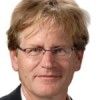Wilders' way with words is here to stay
#CriticalThinking
Growing political polarisation leads to more abusive language in politics
Henk te Velde is Professor of Dutch History at the Leiden University
All over Europe populist parties oppose immigration, Islam, Europe and established politics.
Although these parties are nationalist, they have many things in common. This is what Marine Le Pen of France’s National Front, Frauke Petry of Germany’s Alternative für Deutschland (AfD) and Geert Wilders of the Netherlands’ Party for Freedom (PVV) wanted to show by meeting together in Koblenz this January.
Yet Wilders stands out in at least two respects.
First, he is the only one of the three party leaders who is completely dependent on the national parliament. He has hardly any party organisation to speak of; everything revolves around him. He tweets regularly, but people listen only because he is an influential parliamentarian.
Many of other populist leaders do not even have a seat in their country’s assembly, but Wilders has always been in and around the national parliament. He started as an assistant to the Dutch conservative-liberal party, the VVD, and became an MP for the party before he broke away and started the PVV. Parliament is also the place where Wilders honed his rhetoric: his second salient feature.
People vote for him because they agree with his views about immigration and Islam, but mostly because of the way he puts these views forward. The minister had gone “stark raving mad”. The Netherlands is threatened by a “tsunami of Islamisation”. The socialist opposition leader is the “company lap dog” of the conservative government. A left liberal leader is a “pitiful dwarf”.
Doesn’t democracy imply almost absolute freedom of speech and shouldn’t even offensive language be acceptable?
Whereas in some parliaments most people would scarcely blink an eye at such language, it was unheard-of in Dutch parliament. There has been a long Dutch tradition of consensus-seeking; of managerial and administrative politics. That tradition has, of course, been attacked many times before – but until now, it has proved to be very persistent.
This time politics really seems to be changing. Wilders is using the changing mood of the Dutch parliament to his advantage. It is so unusual to hear his kind of language – simple, clear, violent – and so unusual for a Dutch politician to block every compromise and still be popular.
At first nobody knew how to respond, but this was just a portent of bigger changes in Dutch politics. Parliament used to be mainly concerned with coalition politics, government oversight and making laws. But now its representative function has become much more important. Political parties have been losing their grip on their members, but parliament is on the news bulletins every night.
Most parliamentarians now agree that they should listen to the people, be the voice of the people, or at least they try to be in the public eye all the time. That is only partly down to Wilders alone.
Alexander Pechtold, leader of the left-liberal D66 party and Wilders’ fiercest opponent in parliament, also plays the national audience, albeit with another purpose. By opposing Wilders he has considerably increased the number of seats for his own party. However, most leaders in parliament now prefer transparency and simple language to old-fashioned ideas about the dignity of parliament and administrative politics and they, in fact, condone abusive or unparliamentary language.
Doesn’t democracy imply almost absolute freedom of speech and shouldn’t even offensive language be acceptable? The Prime Minister, the VVD’s Mark Rutte, is Wilders’ competitor for right-wing votes and even he seems to be trying to piggy-back on Wilders’ success.
Growing political polarisation leads to more abusive language in politics
Rutte has said that young Dutch citizens from Moroccan origin who do not follow Dutch rules should “sod off”. But his electoral and parliamentary rhetoric differ: he does not use such language inside parliament and says that they reflect his “personal views”. He does not overtly confront the norms, but pragmatically tries to use Wilders’ tactics in his advantage.
Growing political polarisation leads to more abusive language in politics. This is partly a process of ‘normalisation’ of Dutch politics and the Dutch parliament, an adjustment of tone to what has been common in many other countries. But the growing importance of the representative role of parliament as a megaphone for the ‘voice of the people’ has also changed the concept of how a parliamentarian should behave.
Hans Janmaat, a Dutch right-wing politician who used discriminatory language, was convicted in court in the 1980s and 1990s. One of the reasons was that, as an MP, he was supposed to play an exemplary role. Today, it is the other way round: it has often been argued that Wilders should have more liberty to say what he wants than ordinary people, because he is a politician who should be able to freely express the views of his party.
It is very hard to predict how Wilders and his party will perform at the 15 March elections. Wilders is not new anymore, there is very little chance that he will become part of the next government, and he is increasingly locking himself in his own paranoid world. The polls predict a victory, but not a huge one – he will probably not gain more than about a fifth of the seats in parliament.
However, his influence on political language will remain, because he was the first one to see the window of opportunity opened by the changing role of parliament. As long as parliament is seen as a forum to voice the complaints of the people, there will be the temptation to use the megaphone.
Stay informed
